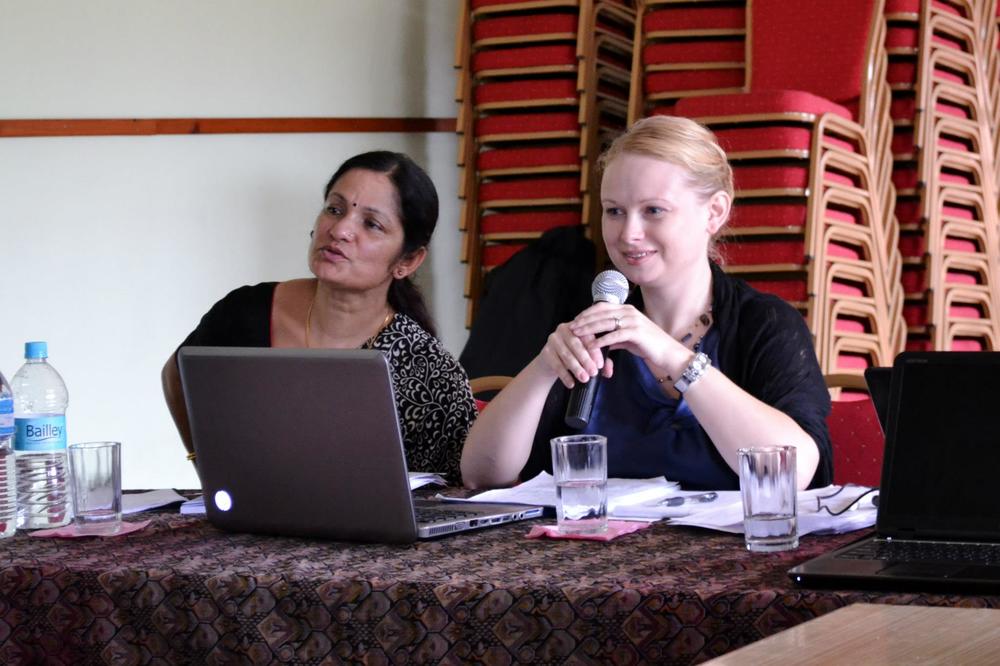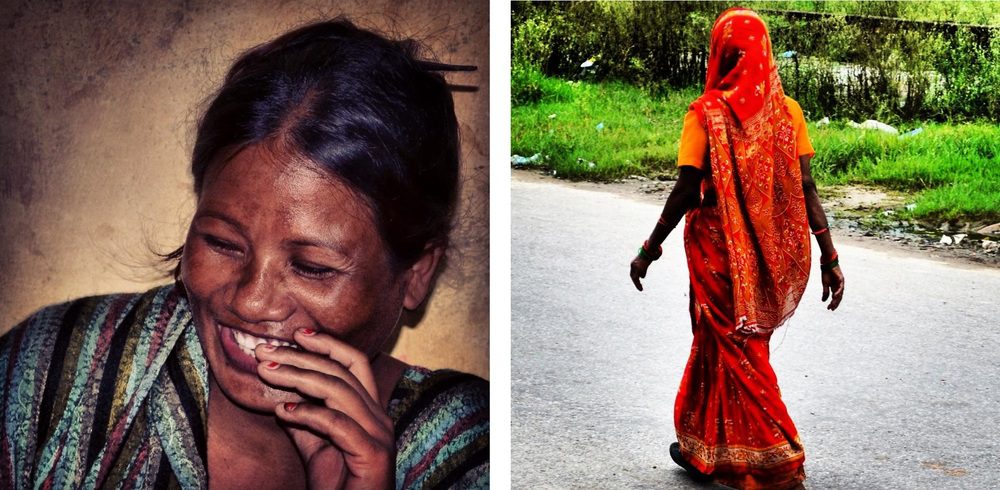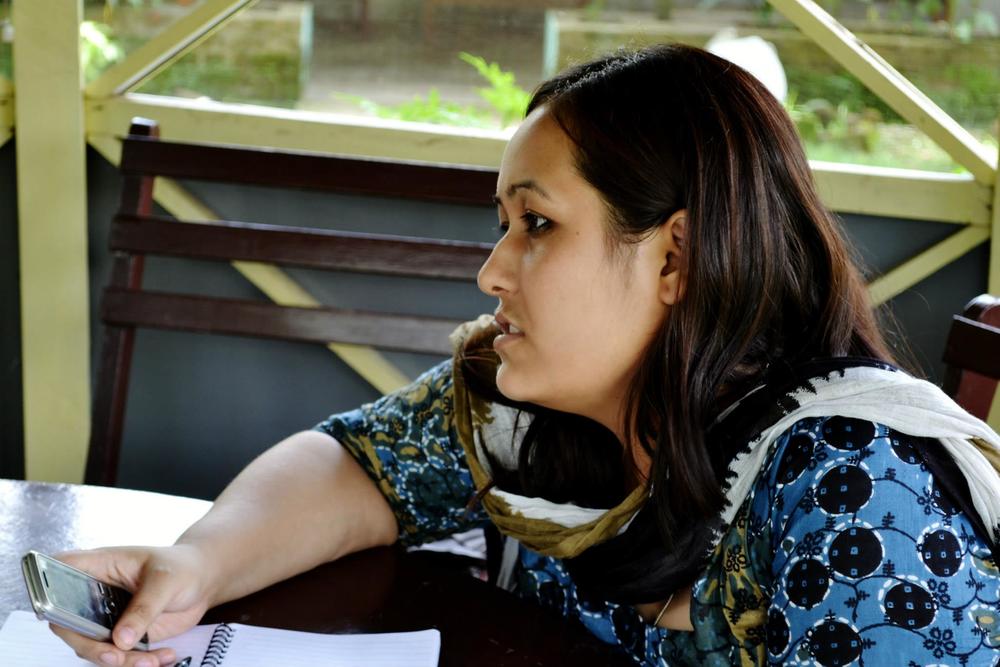Toward Sustainable Anti-Human Trafficking Solutions: The Power of Reliable Information

In the early 2011, I embarked upon a fascinating but rather daunting assignment. I was tasked with evaluating Nepal’s efforts to combat trafficking in persons and assessing the country’s compliance with pertinent international legal standards embedded, among others, in the UN Trafficking Protocol.
I started with a comprehensive desk review of relevant materials. I diligently studied Nepali anti-trafficking laws and policies, scanned secondary materials, read through numerous, often highly sensational media accounts of Nepali women enslaved in Indian brothels, located my research sites – Makwanpur, Kanchanpur, and Morang – on the map, and sketched a preliminary list of study participants and key informants. Then, equipped with rigorous methodologydeveloped by the American Bar Association Rule of Law Initiative (ABA ROLI)and good contacts provided by local attorneys and partner organizations, I landed at the Tribhuvan International Airport in Kathmandu ready to learn directly from a cross-section of more than 60 stakeholders: academics, lawyers, judges, prosecutors, the police, government officials, representatives of governmental and non-governmental organizations, shelter managers, health workers, and – of course – the survivors.
I spent the next three weeks travelling through the hills and plains of Nepal in search for answers to several important questions. What is the nature and scope of human trafficking in Nepal? What are its root causes and implications? Is the Nepali legal and policy framework sufficiently strong to address human trafficking effectively? Has the government committed appropriate resources and taken concrete steps to prevent trafficking, prosecute the perpetrators, and protect the victims? What have civil society and international organizations done to help?

Every person I met with during my journey shed an important light on this multifaceted, highly complex phenomenon so tightly interlinked with poverty, unemployment, gender discrimination, social exclusion, globalization, internal displacement, and foreign migration. And the more knowledgeable I became about the hidden pockets of human trafficking in Nepal, the more questions I had. Why is the Nepali government not regulating the operation of cabin restaurants, dance bars, and massage parlors which are notoriously known as sex exploitation access points? Why is generational bonded labor still flourishing despite being outlawed for over a decade? Why are so many parents of children engaged in servitude and practices similar to slavery not willing to cooperate with organizations trying to rescue them from their masters? Why are governments of India and Nepal not cooperating to suppress exploitation of Nepali girls and boys in Indian brothels and circuses? Why are thousands of unlicensed labor brokers allowed to operate with impunity, fueling irregular migration and augmenting labor trafficking, particularly to the Gulf States and Malaysia? Why is a legal provision placing the burden of proof in human trafficking cases on the defendant viewed as progressive and necessary by local justice system actors? And why do conviction rates in human trafficking cases tend to be lower than in other criminal cases?

The answers to these and many other questions I gathered through this in-depth analytic process filled over 100 pages of the Human Trafficking Assessment Tool (HTAT) Report for Nepal published by ABA ROLI in 2012. The report, funded by Humanity United, documents all manifestations of human trafficking in Nepal, demonstrates the country’s progress in addressing trafficking, identifies a myriad of loopholes, gaps, and challenges, and offers a set of concrete recommendations for rectifying them. As such, it is not only a source of vital and hard-to-find information on socio-political, economic, and legal aspects of human trafficking in the country but it also provides a guidance on how to design and implement effective anti-trafficking strategies and initiatives, prioritize and focus legal reform efforts, enhance the country’s compliance with international human rights standards, and monitor progress in the fight against human trafficking at the local and regional levels.
The reason why I and other researchers at ABA ROLI engage in such a meticulous and sometimes lengthy process of collecting and analyzing human trafficking data goes beyond a simple desire to fill a knowledge gap or engage in an academic research and writing exercise. In our role as technical assistance providers and rule of law implementers, we hold a firm belief that collection of country-specific information creates a necessary foundation for identifying important elements of the reform process. This detailed information is absolutely vital to ensure that our programs target countries’ very concrete needs while capitalizing on their strengths, best practices, and available resources. But we at ABA ROLI are not the only stakeholders who use this data. Our reports, which are available online and in print, serve as an excellent resource for our local partners, government and civil society leaders, legislators, policy- and decision-makers, activists, international donors, other technical assistance providers, journalists, and scholars. These assessments fulfill a very practical function of helping reformers craft nuanced, tailored, and sustainable anti-trafficking solutions – from new laws and national action plans, through trainings for legal aid providers and justice system actors, to grassroots awareness raising campaigns. As such they complement the more conventional but also valuable blame-and-shame model of human rights reporting and advocacy.
Paulina Rudnicka is a Senior Legal Analyst at ABA ROLI’s Research and Assessments Office where she conducts research and analysis related to trafficking in persons, human rights, women’s rights, global health (including HIV-related discrimination), and marginalized populations. Paulina joined ABA ROLI in September 2005 after completing a fellowship at Human Rights First. She was a Thomas Buergenthal Scholar at the George Washington University Law School, where she earned her LL.M. in International and Comparative Law. In addition, she holds a Master’s of Law degree from the Jagiellonian University in Krakow, Poland.
ABA ROLI is an international development program that promotes the rule of law by working with in-country partners to build sustainable institutions and societies that deliver justice, foster economic opportunity and ensure respect for human dignity. For more information please visit: www.abarol.org.
